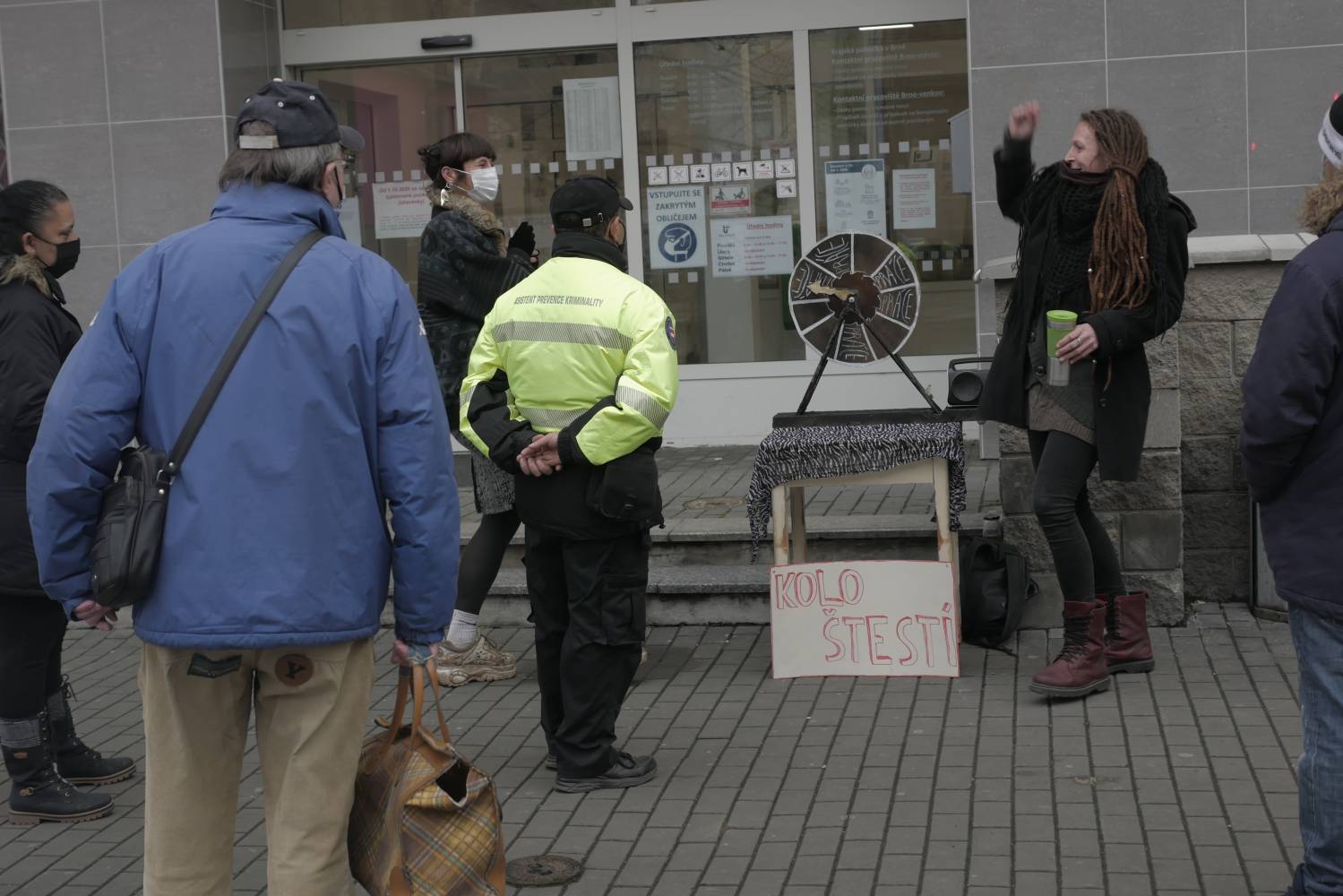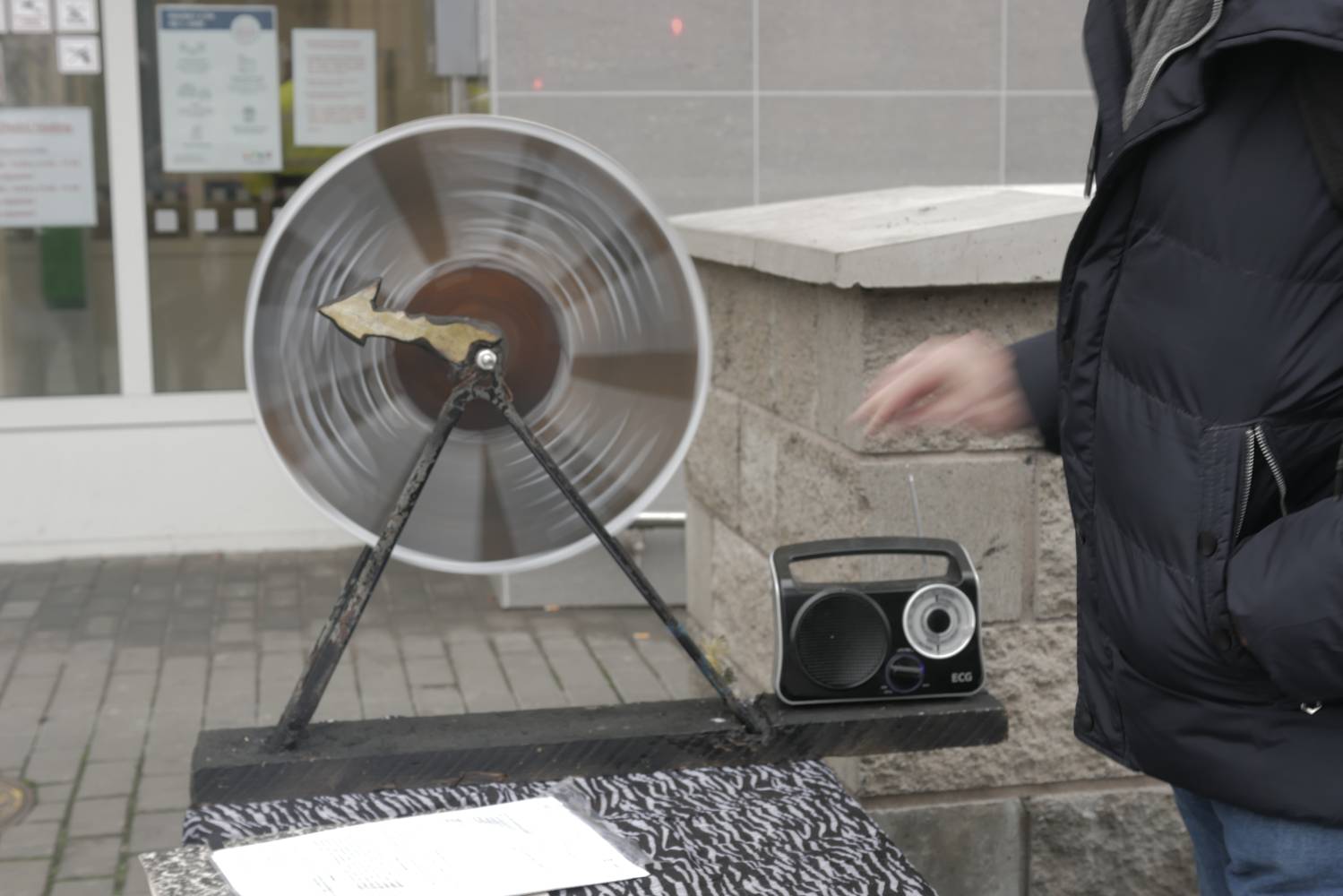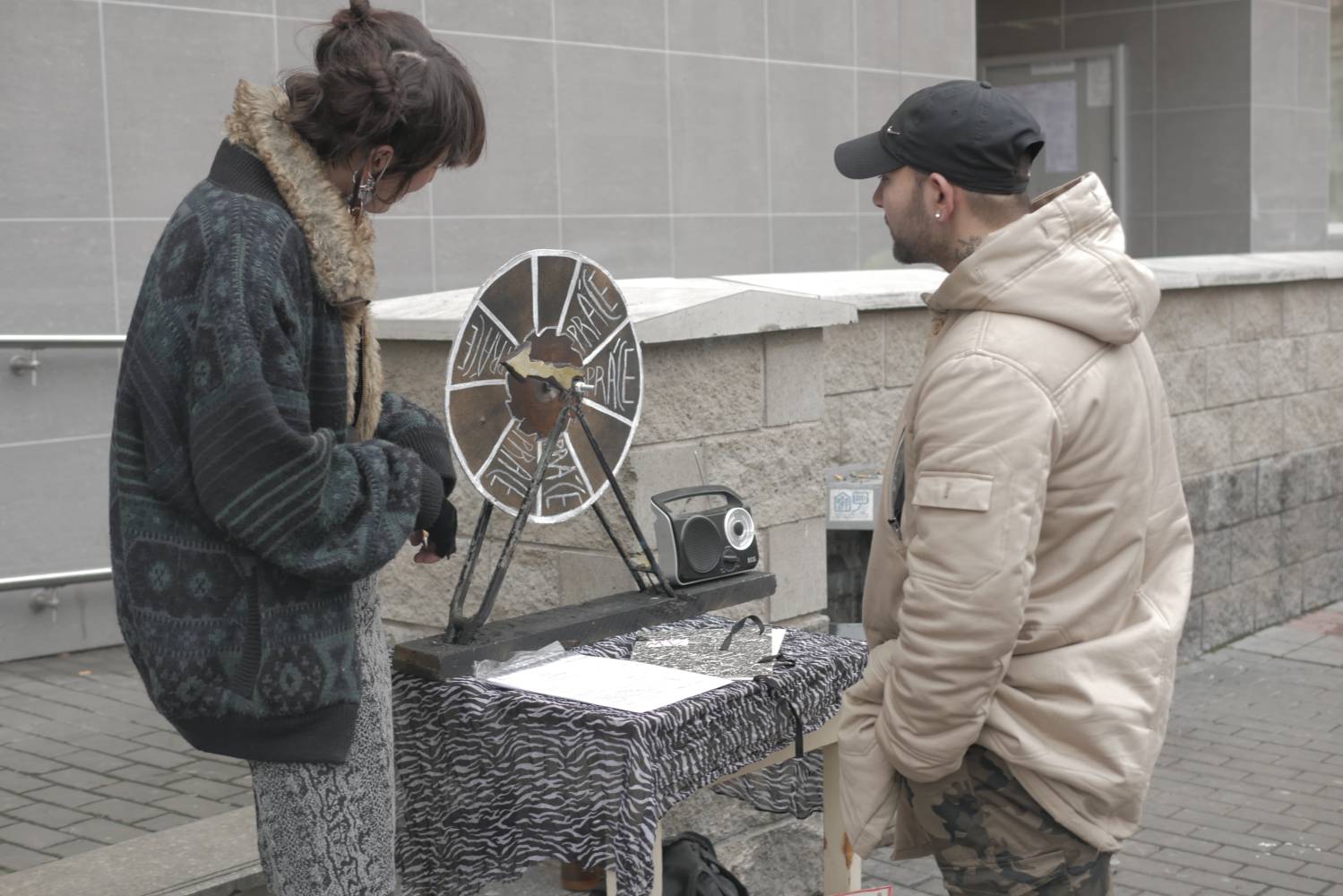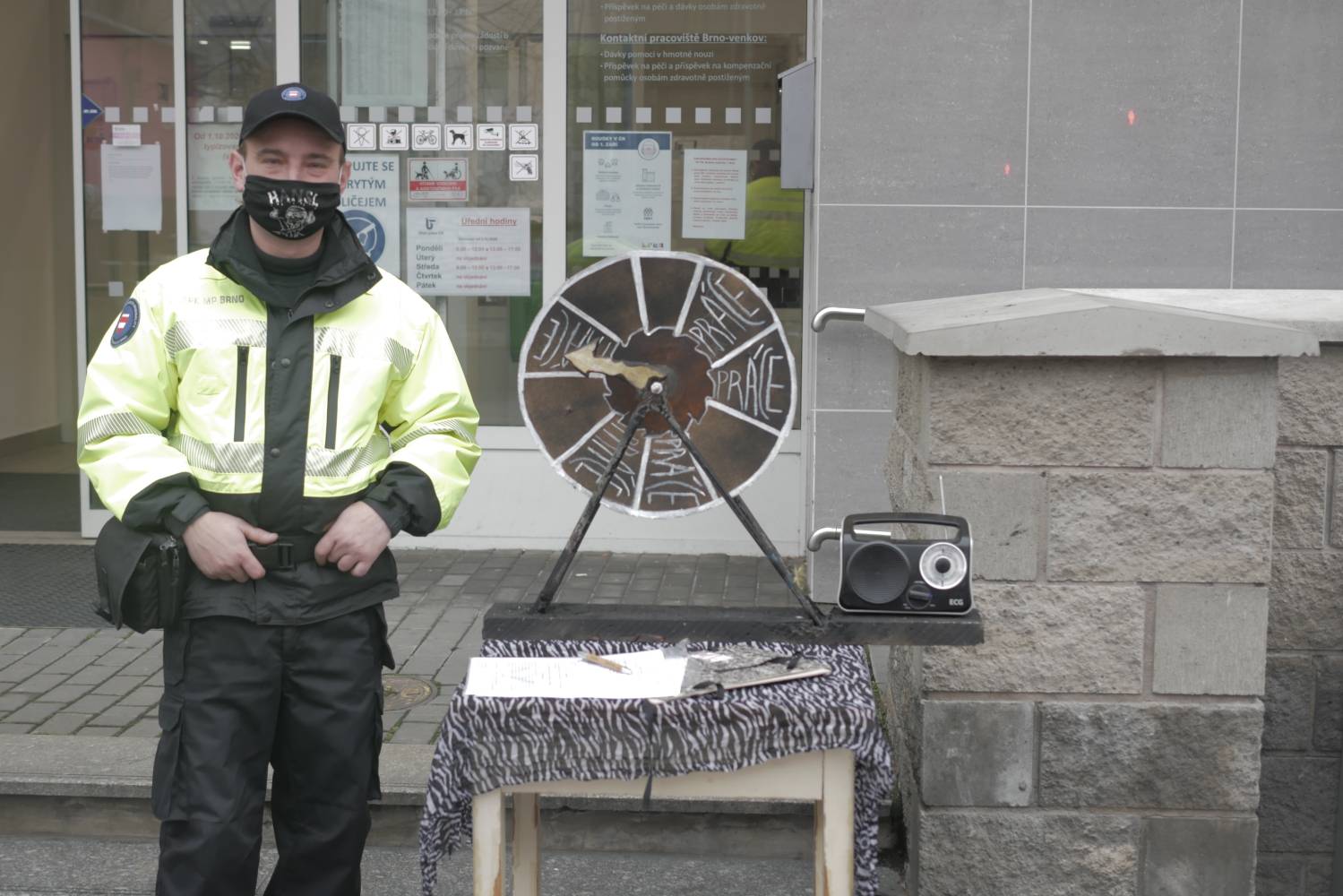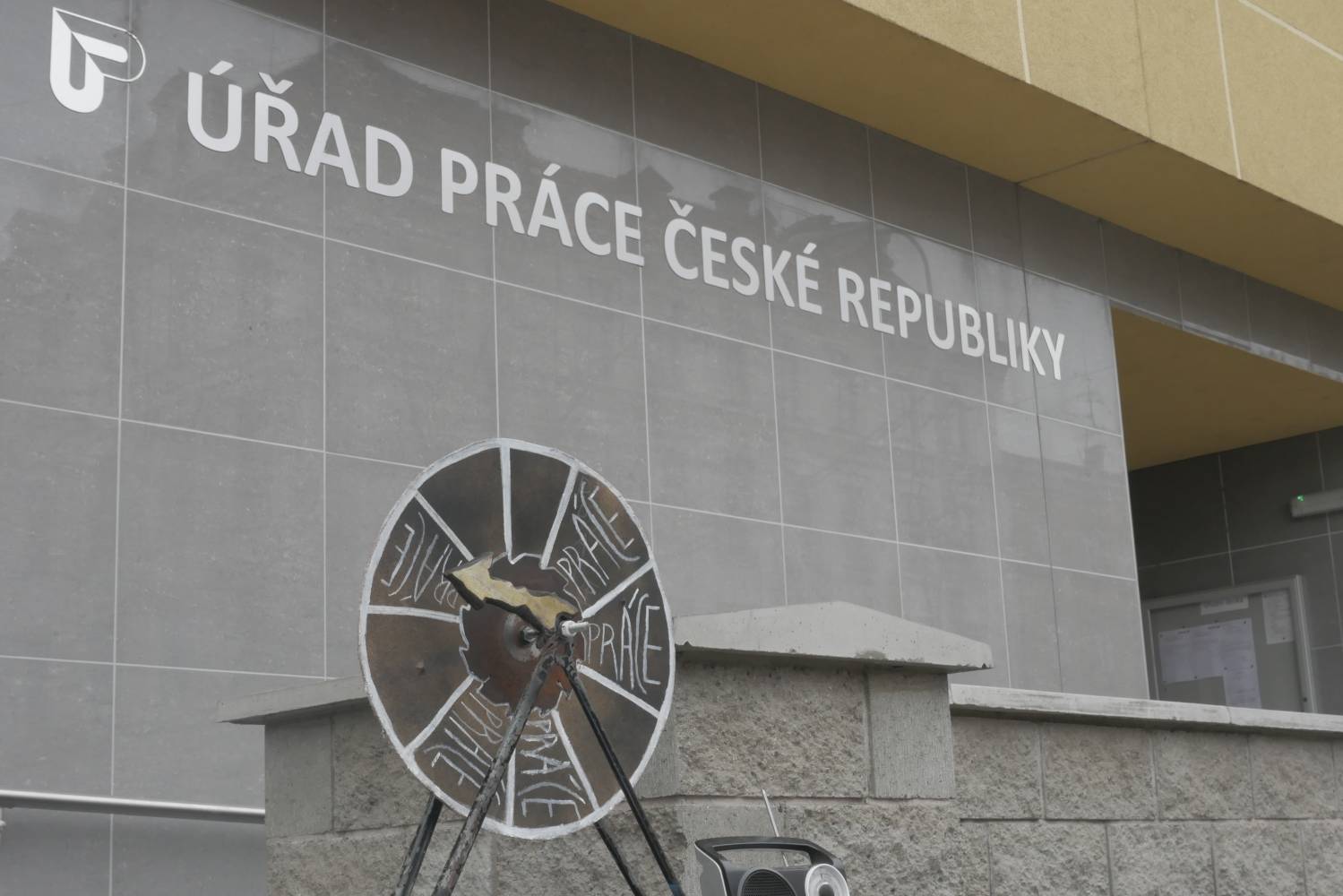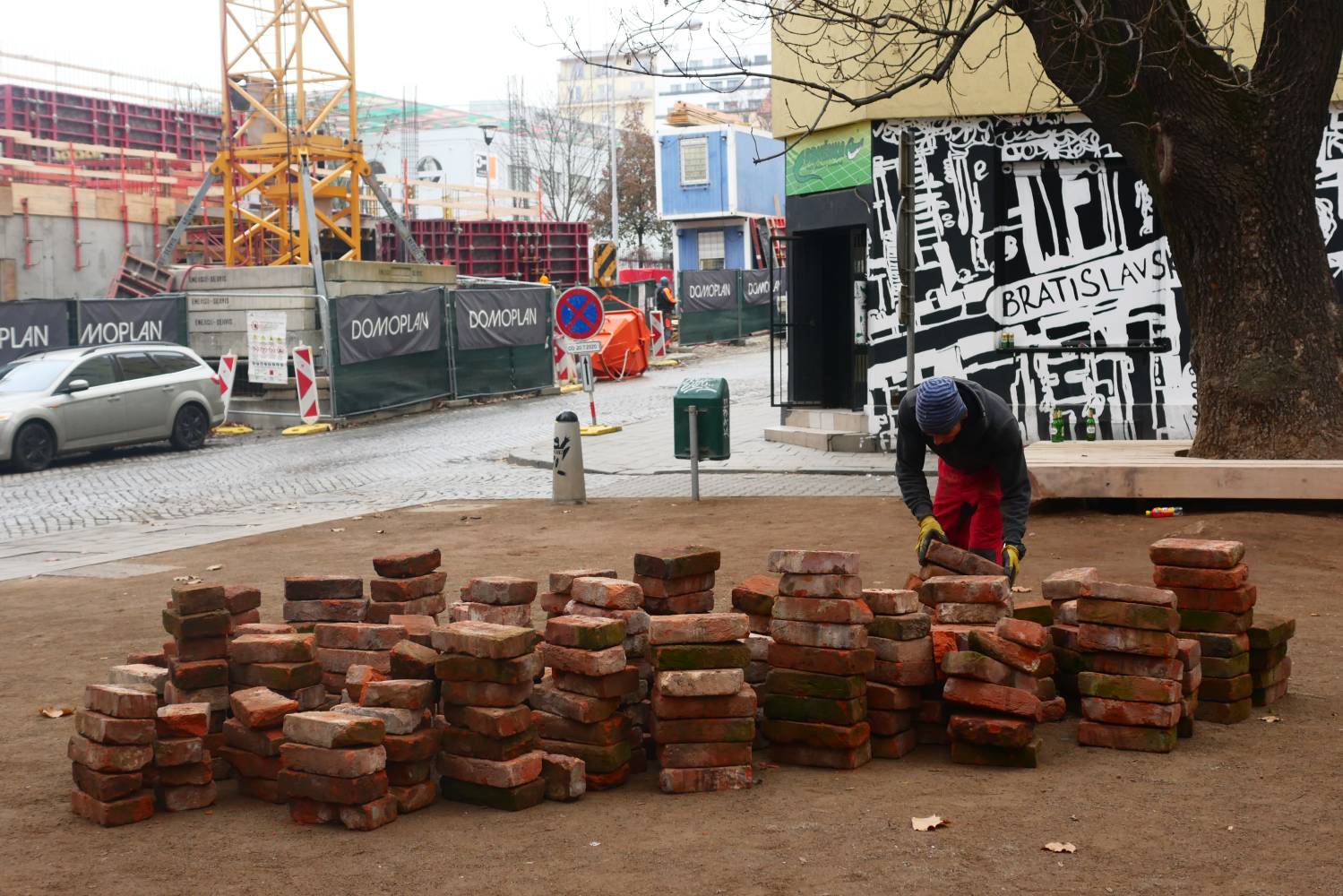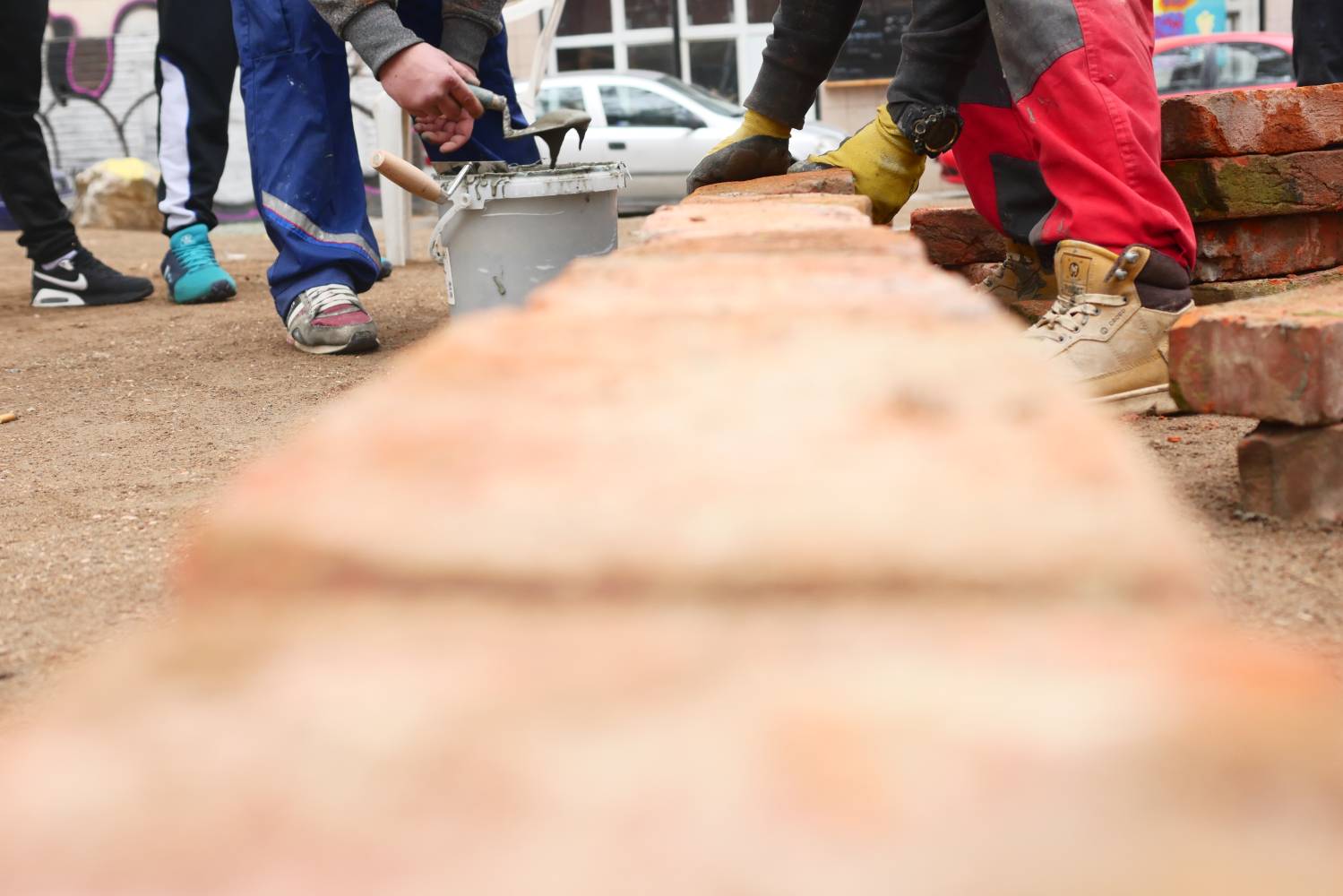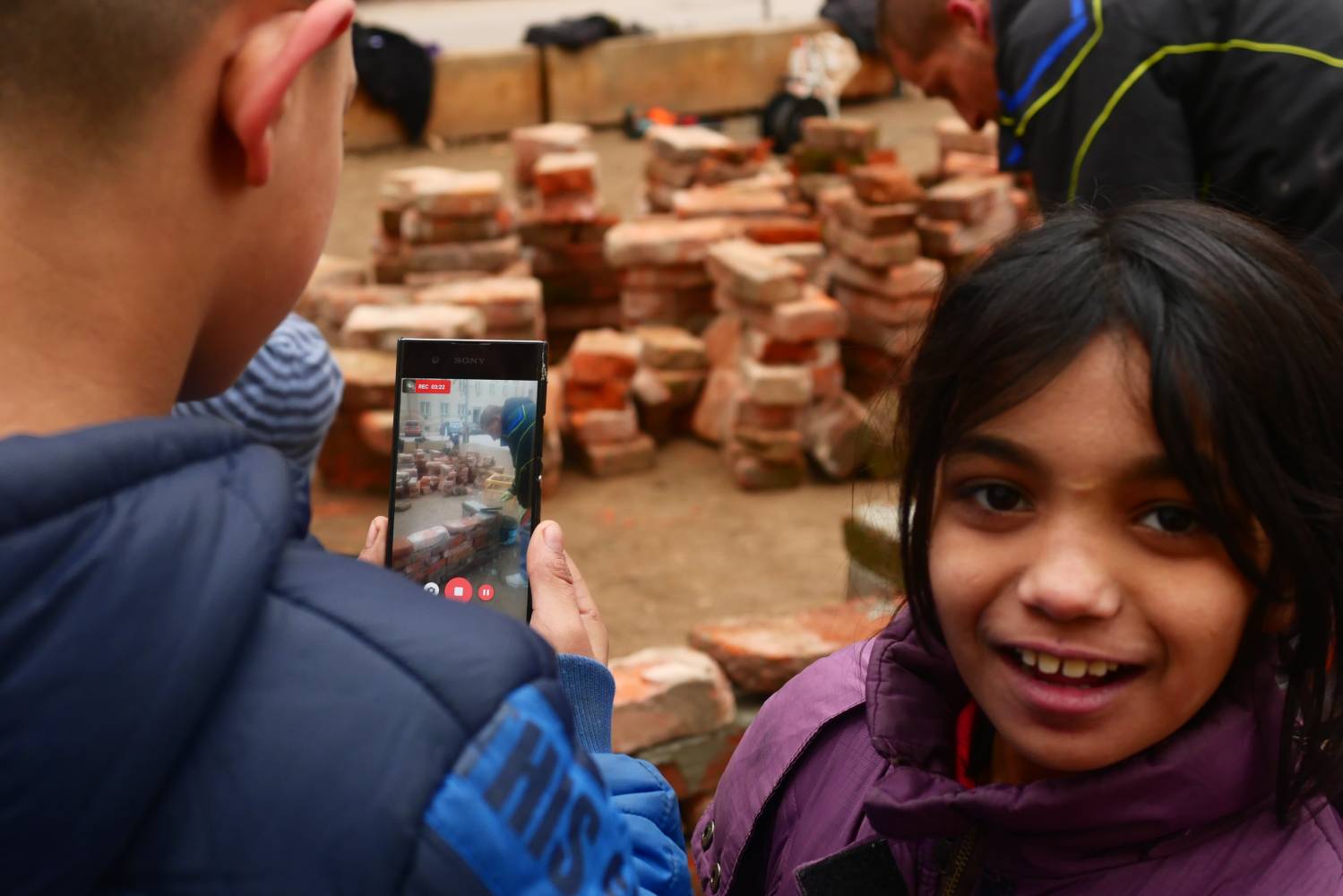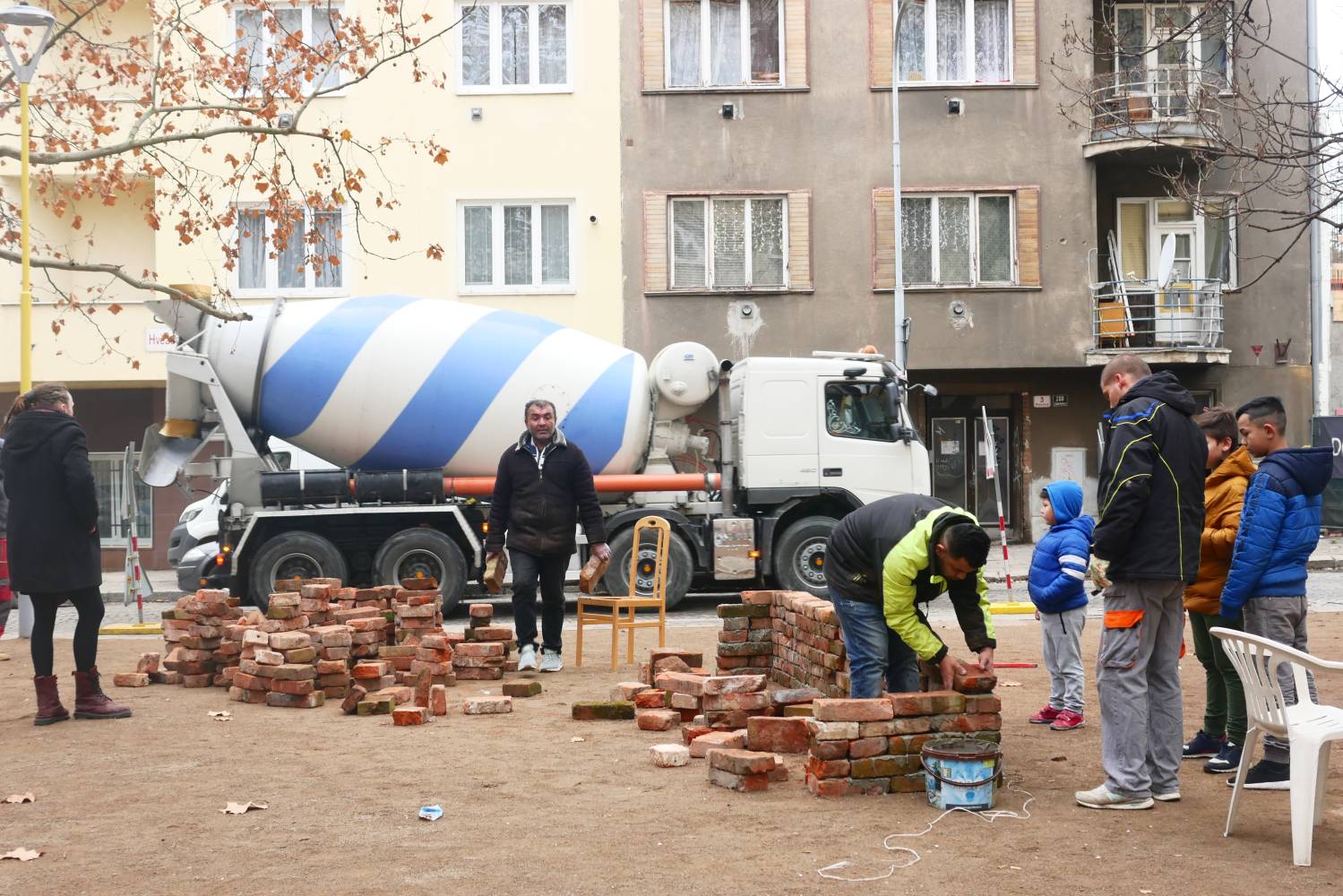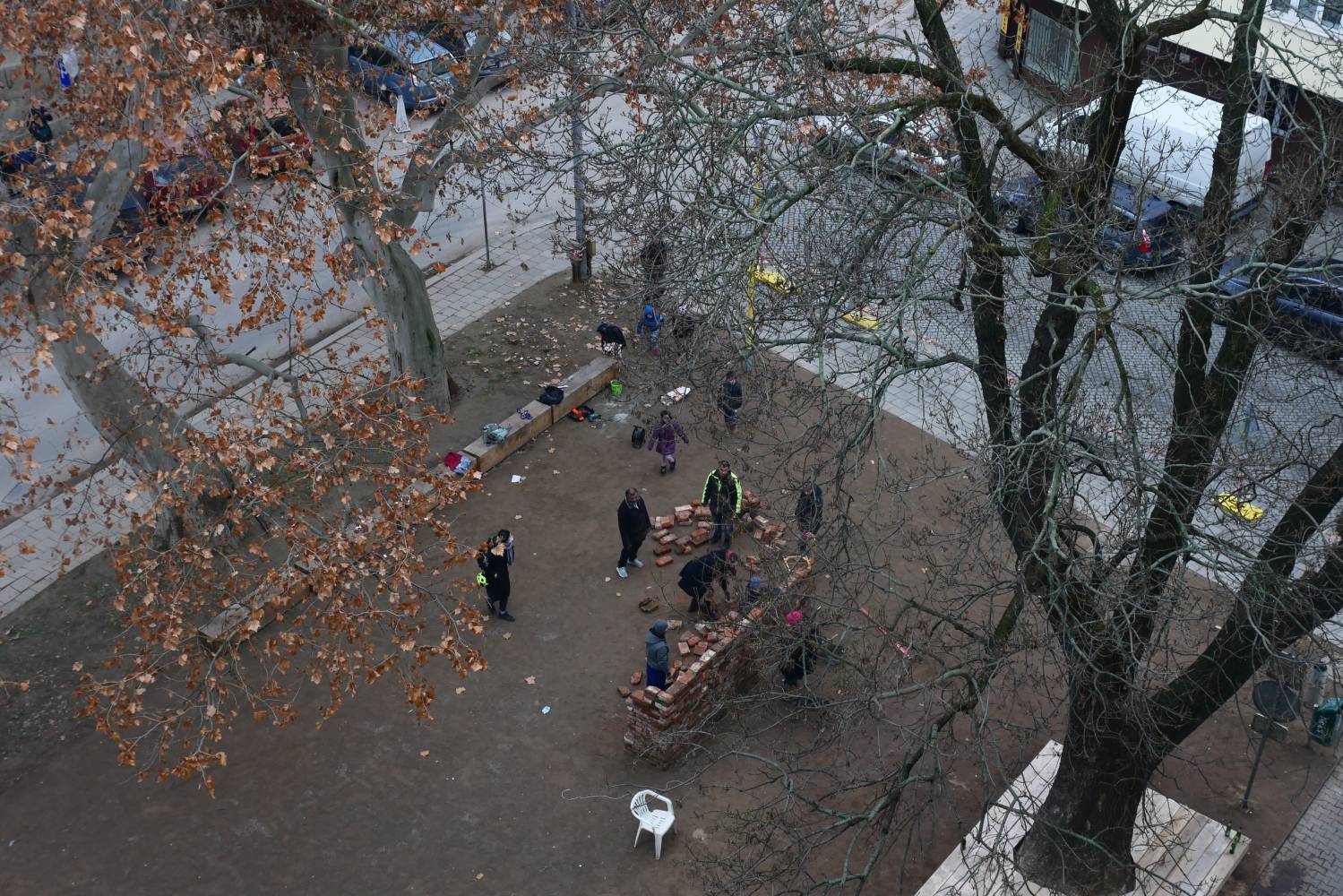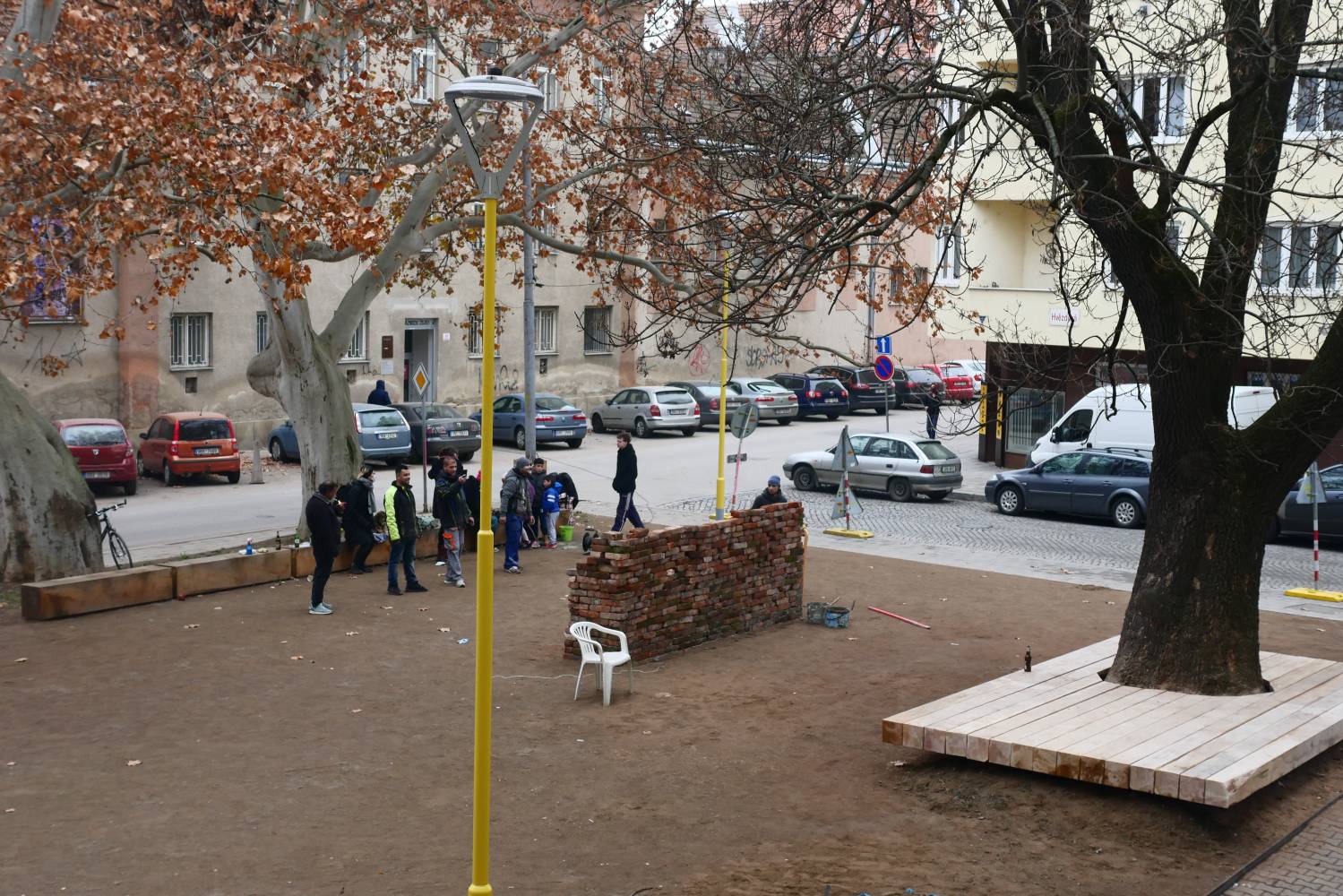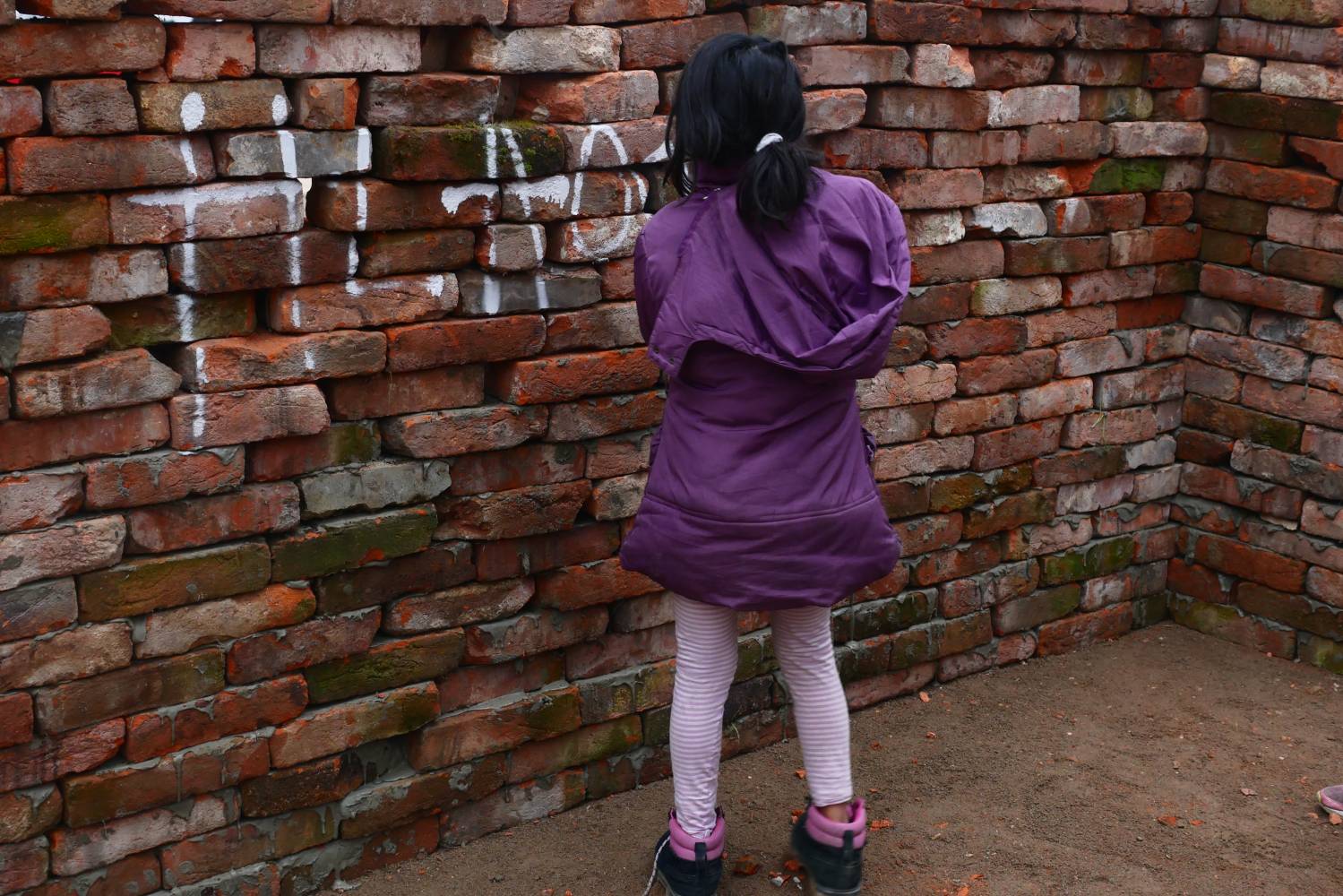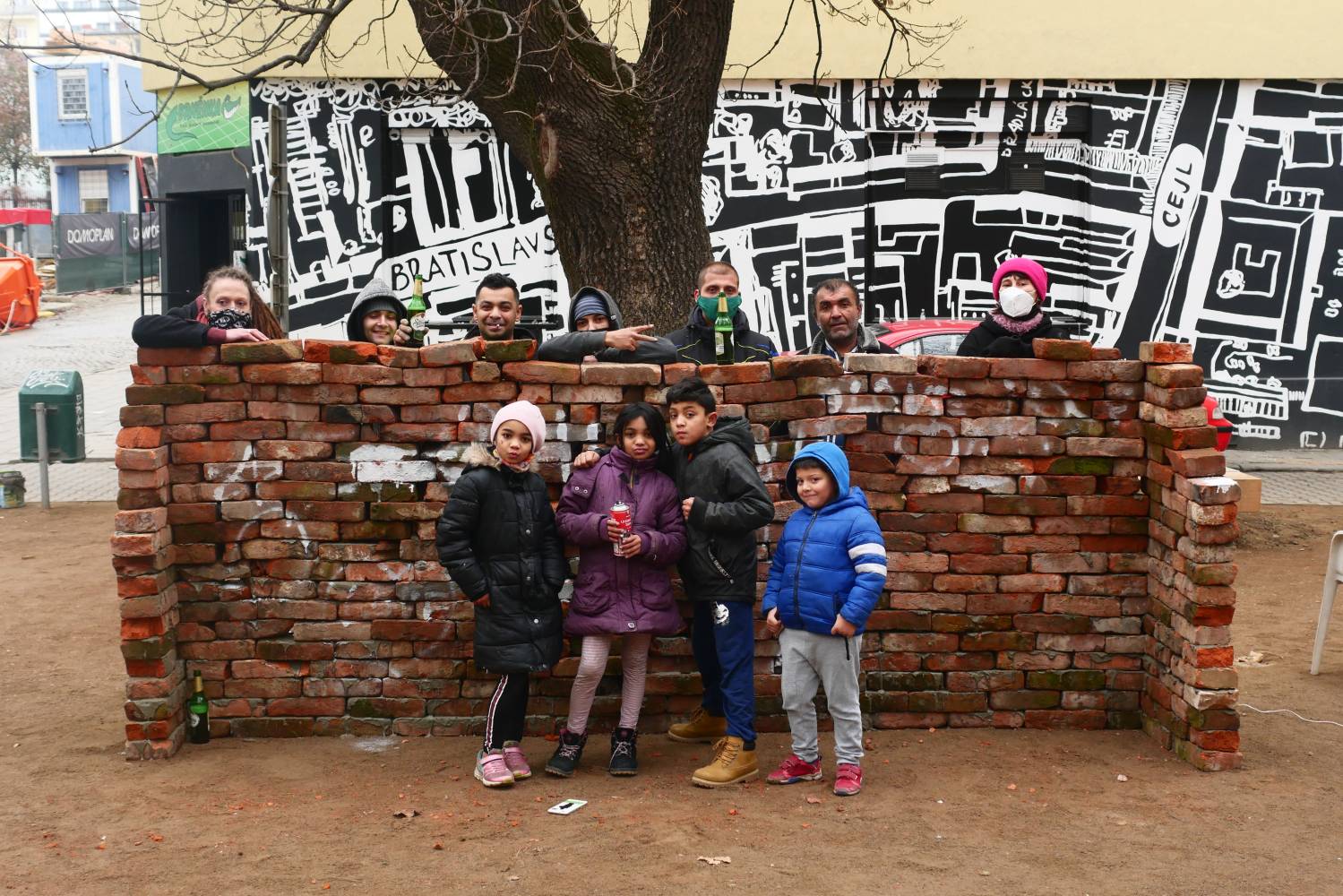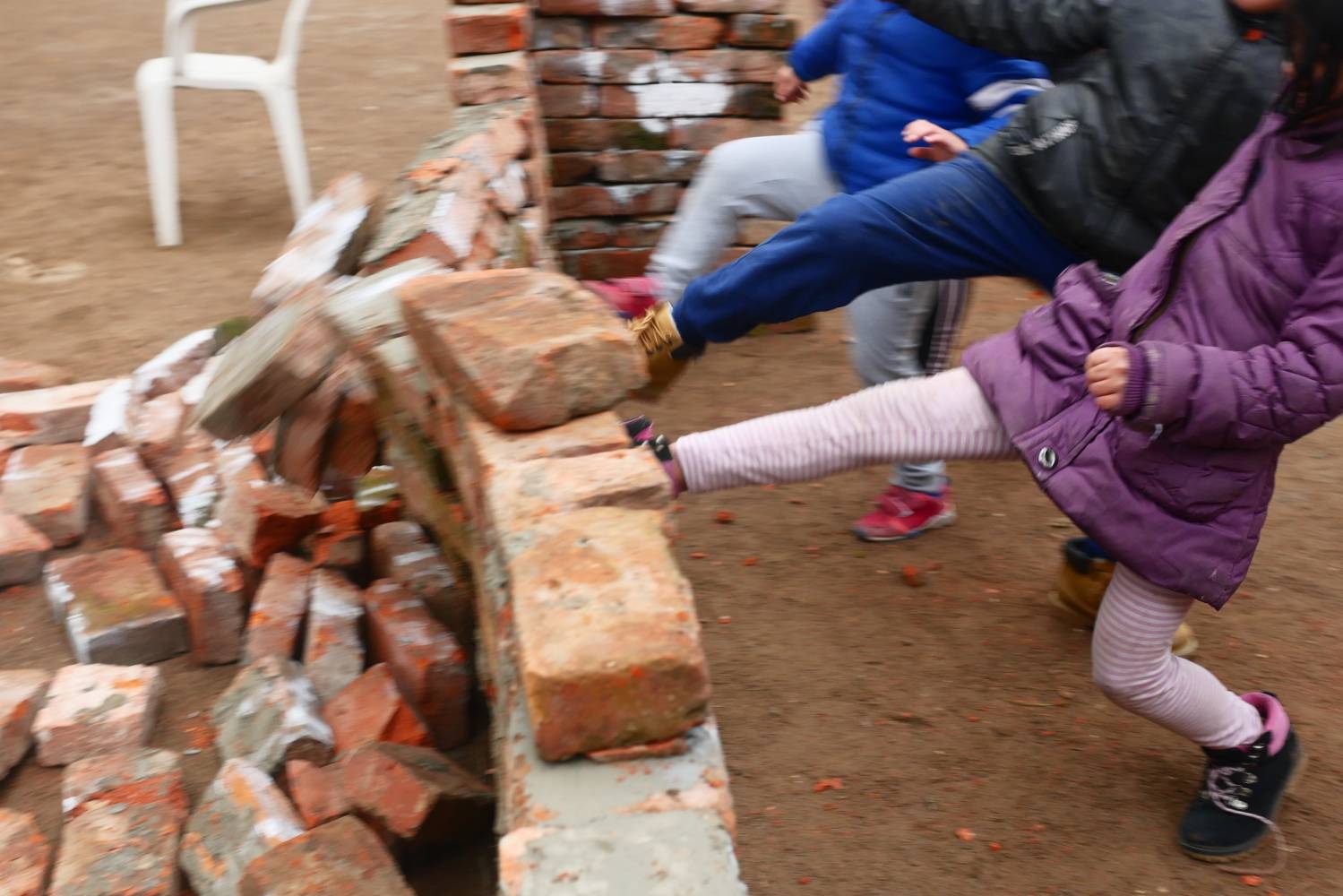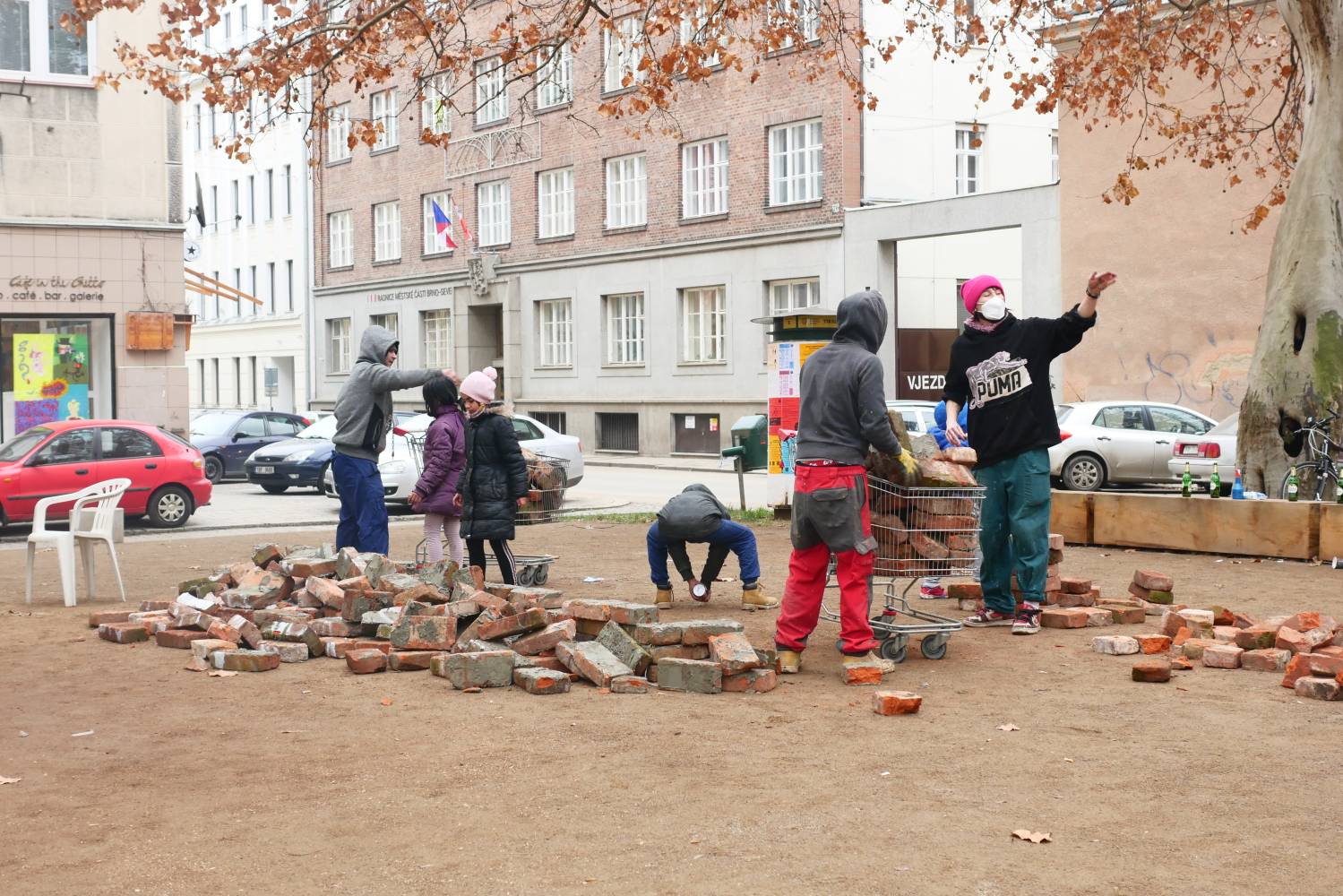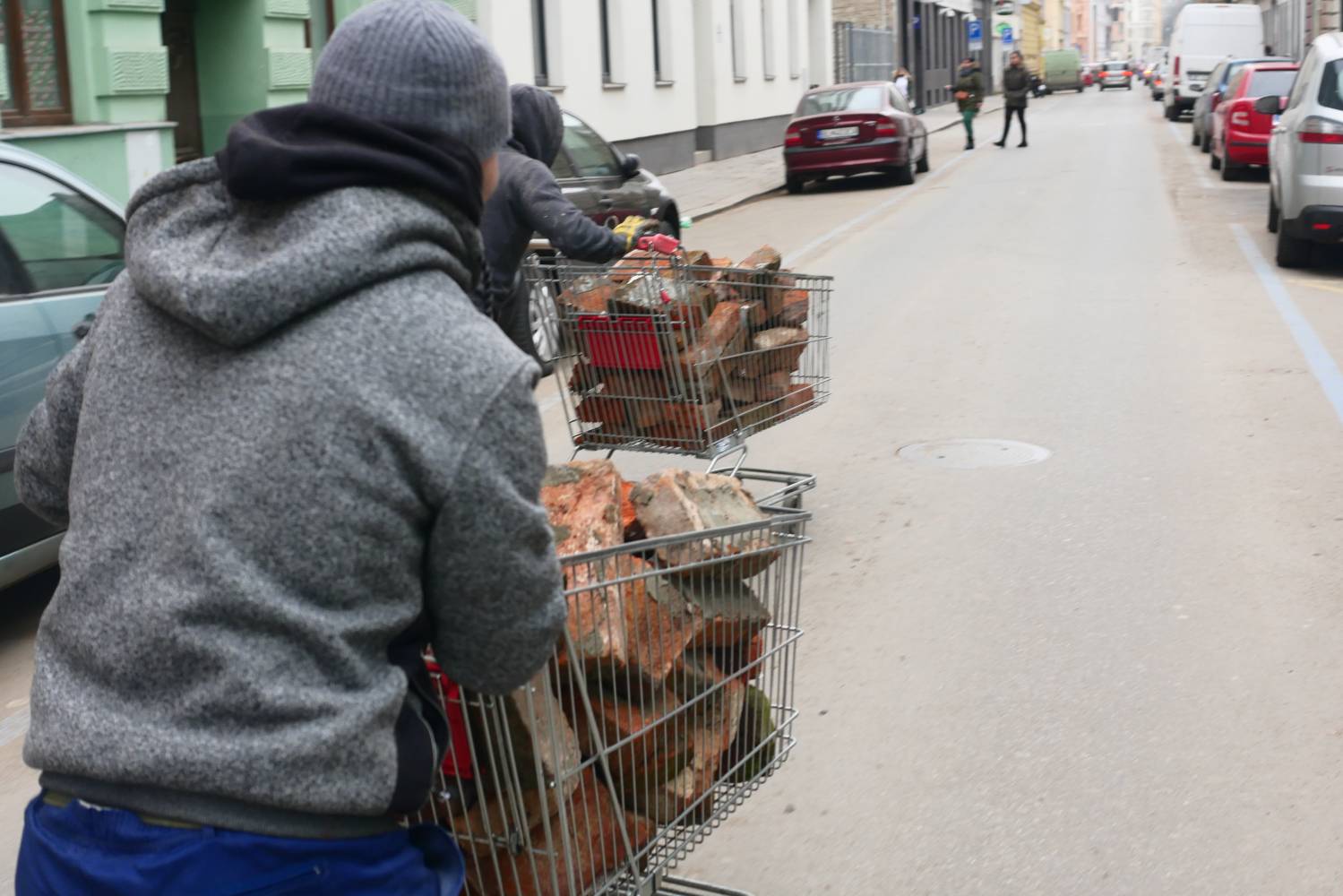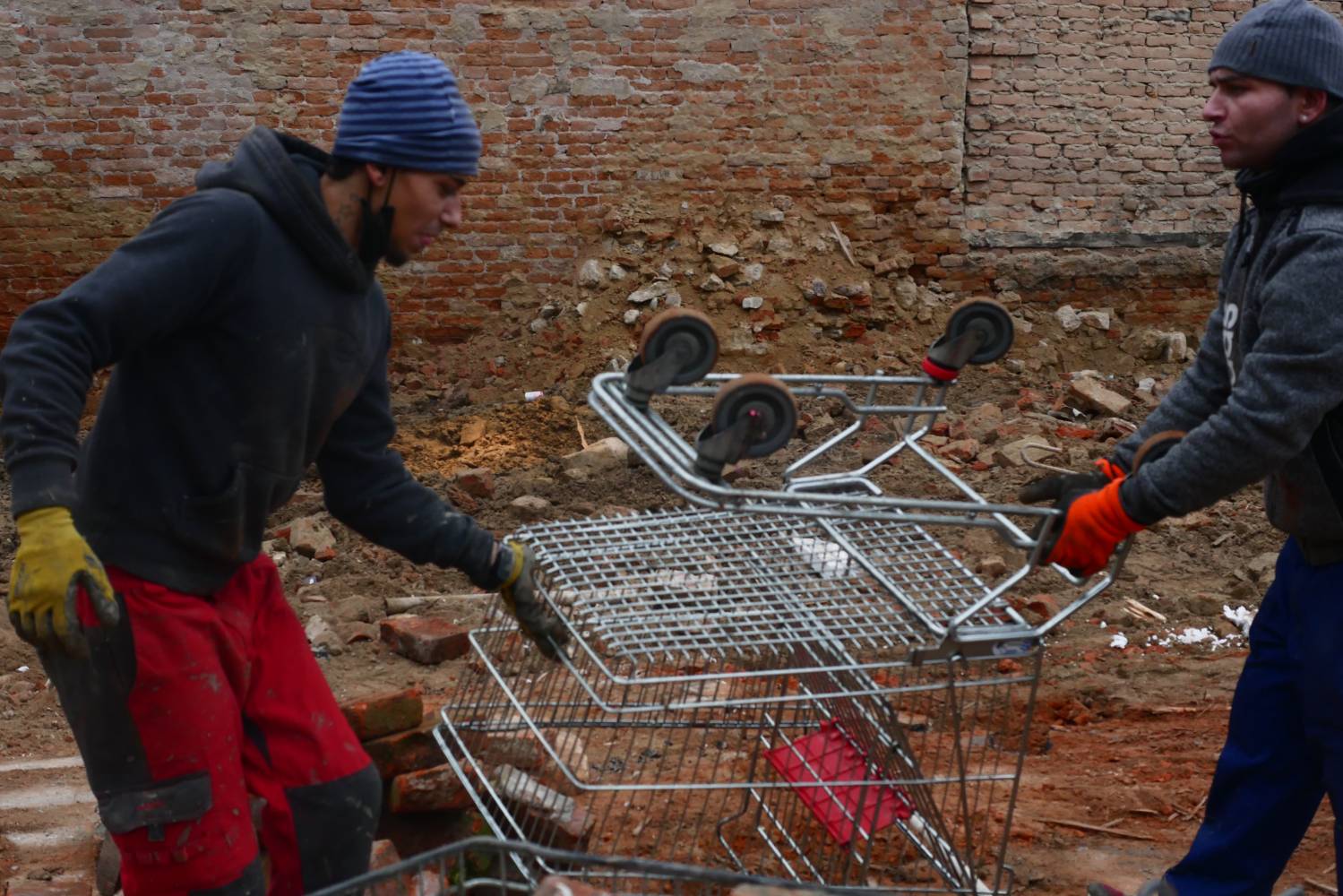inner dialogue
BB: Bára, what was this project all about?
BB: Well, Matyáš (Dlab) called me towards the end of October and said Terén had got a budget for social art projects, three in total, and they’d like me to do one.
BB: So the topic was pretty much unspecified.
BB: That depends. On one hand, it was quite broad, but on the other hand there were limits coming from other areas. I was ruminating on it in general terms and I went through these waves of futility and blind alleys… It took me a long time to really dive into it.
BB: Hey Bára, slow down. Skip the blind alleys if possible…
BB: OK, so everything was silent for a while and then we started talking on the phone… Right, that’s probably not important… What is important, I think, is that at the beginning I hadn’t really realized what I’d signed up for. I thought these social art projects were the reason why I decided to study at FaVU in the first place. But now I had this money (still imaginary at that time) and I felt awful.
BB: Could you explain why?
BB: Suddenly, I felt like I wasn’t able to use that money in an ethical way for artistic purposes. It seemed like I didn’t have enough and the things that I could do with it seemed poor. What’s more, I realized that I’m not only limited by the responsibility of where the money goes but also where it comes from (Terén is the city’s contributory organization). Moreover, I was really critically assessing the fact that the commission only allowed for a one-time event, a charity help or a donation act. I felt trapped and my goal was to get out of that trap without breaking those thoughts and constructs…
BB: And? Did you get out?
BB: I’m not sure. I’ll describe the project itself: In the first part, I was offering a job in front of the labour office. People could spin the wheel of fortune and win the contract. I didn’t want to collaborate with another institution. Firstly, I think that institutions as such serve as a kind of filter (not everybody wants to use them), but also I wanted to offer people the opportunity to decide whether they wanted to take part in the game (or not). I didn’t want to perceive them as more or less passive participants, puppets, or victims. I was offering the same service as the office but I stripped away most of the bureaucratic steps and put in a little bit of chance and play. I believe (perhaps a bit naively) that it’s good to step out of your fixed patterns, especially now when the pandemic control measures are pushing chance out of our everyday lives.
BB: What was the reaction of the people? Did they want to stir the reality up with a bit of fantasy?
BB: Yeah, they did. Honestly, I didn’t expect they would be that open to trying out something so silly. I wasn’t sure if that meant they believed in the same things as I do, or if they were simply broke. I think the ratio was maybe 30:70.
BB: Yes, good, perhaps a bit too detailed. Edit yourself. What was next?
BB: Yeah, sorry, sorry. Well, next came the work itself.
BB: What kind of work?
BB: We were building a “hunger wall”. There’s a legend tied to the original Hunger Wall which runs from Petřín to Hradčany. The story says that Karel IV. ordered the wall to be built during a famine in Prague to feed the poor.
BB: So you were playing the part of an emperor?
BB: Come on, I’m more of a representative of the higher power, no? The second to last link in the chain, let’s say…
BB: … just a self-critical remark to tease your ego…
BB: Yeah, right. Anyways, in order to really emphasise the thought of working for work’s sake we also knocked the wall down right after we’d built it. I just ran off to Hvězdová and bought a spray for the kids to fool around with, we took some photos, and tore the wall down.
BB: Did the participants understand your concept?
BB: Some of them did, for sure. One of the younger boys was really involved. But there was also one man who didn’t care at all. He just came for the money but that’s also totally fine, why should he care. That was another important realization I had.
BB: What do you mean?
BB: Well, with this kind of work it’s even more important to think about the perspectives and the points of view of the people. You know, the people who worked on that with me, or a majority of them, grew up somewhere in Cejl, they have been living there their whole life, their sociocultural background is completely different from mine…
BB: Can you be more specific? This is still really abstract…
BB: True. For example, I thought we would be chatting while working about the things we do, the way we live, how we could tighten this collaboration… But the people really saw it as a one-shot job, they didn’t know whether they could trust me. The world of art institutions is distant and foreign to them. It makes you wonder about your own privileged position and everything that is related to that position.
BB: Understood. Let’s talk about something else – where did you get the material? What happened to it afterwards?
BB: My friend brought me the bricks. I found them for free a little way out of Brno. Afterwards we dumped most of them on a pile of bricks next to a house that was being demolished on the end of Bratislavská street, my friends took a few of them for their garden.
BB: Lovely, a garden, flowers… well, that sounds almost perfectly zero waste but it’s also as if nothing ever happened, isn’t that a bit upsetting?
BB: Well, sure I’d like to have “my own” wall in Cejl. I’d turn it into a legal wall and kids could spray on the names of their loves and their enemies. But it didn’t really fit in conceptually. It was less paperwork and also I felt quite good about the fact that I’m not putting in any claims on that place. Even though I think it might’ve been quite a pointed intervention which could fulfil the needs of the locals (kids) – to scribble freely on a wall.
BB: That’s interesting, can you elaborate on that? Recently, a lot of murals have popped up in Cejl and there are plans for a revitalization of the whole neighbourhood supervised by Kateřina Šedá. You didn’t choose this place by chance, is that right?
BB: No, I didn’t. I spend a lot of time in Cejl. It’s one of the few places in Brno where I feel good. I like the dirty pavements and its energy which I generally miss in Brno. Concerning the murals… Firstly, it kind of seems like painting a pink picture of reality. Secondly, it’s a classic example of gentrification. No need to go far for an example, look at Holešovice in Prague or Žižkov, and how the population there changes under the pressure of “revitalization”. Revitalization really mainly means rising rents. When you look at Cejl, I think it’s safe to say it bears some aspects of a ghetto. People who live there have also often grown up there, they work there and will likely grow old there, without venturing further than Husovice (if they are not repairing the paving on Veveří). When these people lose their homes because they won’t be able to afford them, where will they go? Do you think it’s possible to find reasonable new housing as a Roma person with a family?
BB: So you are actually glad that you’ve left no traces there in the end?
BB: Yeah, ultimately I am. I think artists should be more aware of the consequences of their work and stop treating public space as an empty space. The street is not a white cube. What you put (or don’t put) on the street has got a real impact on things.
BB: Well then, what was the purpose of building that wall in Cejl of all places?
BB: Maybe even just to try if it’s possible to do things differently… At the same time, my idea was to take it as another step towards a long-term collaboration with the local community…
BB: OK, and do you think you have succeeded, at least partly? If the result is not the wall, did you, or the participants, get something else out of it? You have kind of mentioned it already…
BB: To be honest, the main thing that the participants got out of it was money for Christmas. They enjoyed the tomfoolery in front of the labour office but that second part was really just a job for them. For me, it was mainly a kind of awakening. Even though I think I had no illusions about the reciprocal relations between people, work, and money, during these two days I truly felt the gravity of the situation. How much alienated the work is, the people resigned, the money… insufficient? Poorly distributed? In the end, I had to admit that my friend Hynek Trojánek, a radical social worker and a screenwriter, was right when he said it was all problematic right from the beginning. He said that it’s always better to come up with a good specific idea first and then get the budget for it rather than start with a sum of money and try to think of some way to use it for a good cause. The former process makes more sense and consequently it is less limiting. And finally, during that whole time I was thinking how little I was giving to the people (time, information, my energy, even money) and how important it is to be making structural changes and to do things systematically, in-depth, and on a long-term basis. However, as I mentioned before, to be able to develop such a collaboration, I’ll first need to detach myself from my own (white and privileged) perspective. Only after that it might be realistic that “the others” would be willing to enter into a dialogue with me. About their needs, options, and how it would be possible to fulfil them – even through art.
BB: I sense you still have some doubts. Do you think this wasn’t enough?
BB: I do have doubts, of course. But that’s OK. I think doubts can be a good drive for thinking about doing things better, rearranging your ideas so that they are a bit clearer and you can build better constructs upon them. Whether it was enough… that’s a sort of judgement I’d like to avoid. Regardless of what I’ve said about the long-term collaboration and structural changes, I think it’s always good to take even that little opportunity you have to help others.
BB: We did a sloppy job presenting and describing the event itself, didn’t we?
BB: Perhaps a little bit but that event already happened and this text cannot change that. This is simply a representation of my work. Besides, there are photos by Markéta…
BB: Do you think a more detailed description might commodify that “here and now” aspect?
BB: Well, I’m already doing that, no? And I don’t need to do that more than necessary. I’m OK with fleetingness. The important thing for me is whether these events leave an impression on their participants.
BB: OK, that makes sense. And what was the best thing about it all?
BB: The kids. The kids really had a blast.
BIO: Bára Bažantová was born under the zodiac sign of Aries. Before she started studying at FaVU, Brno, she was studying in the noninstitutional studio of psychologists Zuzana Brodilová and Tomáš Malík. She doesn’t like people who like money.
